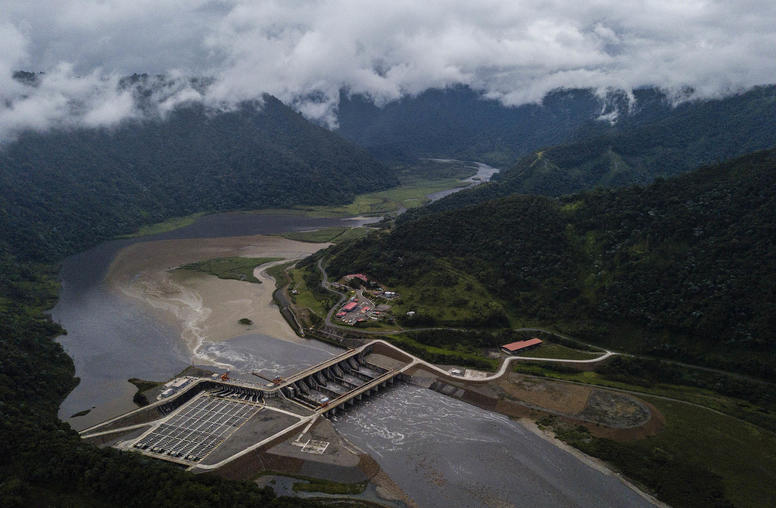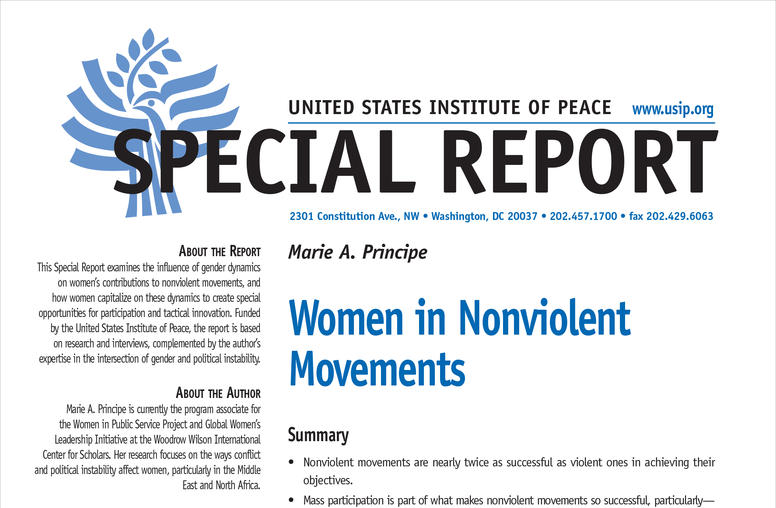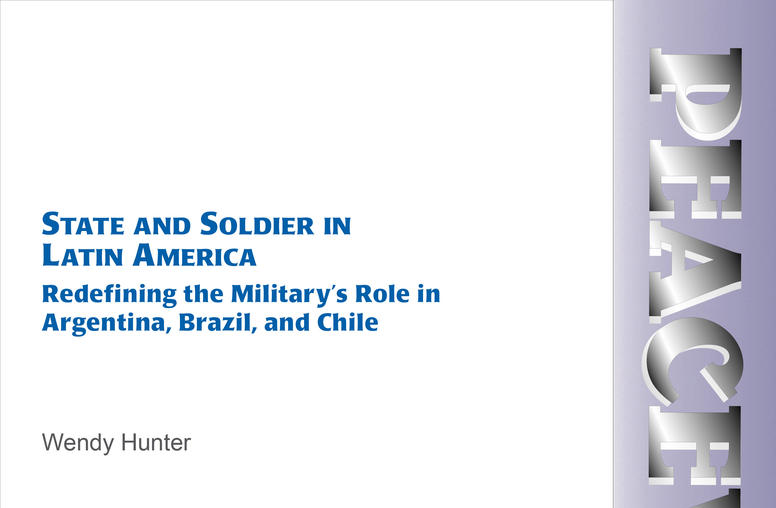Commission of Inquiry: Chile 03
Commission of Inquiry: National Commission on Political Imprisonment and Torture
Duration: 2003 - 2005
Charter: Supreme Decree No. 1040
Commissioners: 8
Report: Public reports
Commission of Inquiry: National Commission on Political Imprisonment and Torture (Comisión Nacional Sobre Prisón Politica y Tortura, "Valech Commission")
Dates of Operation: September 2003 - June 1, 2005 (1 year, 9 months)
Background: In 1973, President Salvador Allende was removed from power and General Augusto Pinochet took over the Chilean government as commander of the armed forces. Pinochet’s government oppressed various opposition groups during his rule. The Pinochet dictatorship ended in 1989 when he lost by a narrow margin in national elections. Shortly thereafter, President Patricio Aylwin established Chile's National Commission for Truth and Reconciliation known as "the Rettig Commission" in 1990.
The Rettig Commission was only allowed to investigate crimes resulting in death or disappearance, and victims and civil society pushed for additional efforts to deal with the human rights violations of the Pinochet era that did not result in death such as torture and unlawful detention. President Ricardo Lagos created the Valech Commission as an advisory body to further document these abuses under the military dictatorship.
Charter: The Valech Commission was created by Supreme Decree No. 1040 (PDF-67KB), September 26, 2003, issued by the President of the Republic and signed by the Minster of the Interior. After completing its initial investigation, the Valech Commission was ordered by Supreme Decree No. 1086 (PDF-34KB), November 3, 2004 to complement its report with additional information on unresolved cases.
Mandate: The Valech Commission was mandated to document abuses of civil rights or politically motivated torture that took place between September 11, 1973 and March 10, 1990 by agents of the state and by people in their service. It was also instructed to identify the victims, propose measures of reparations and produce a final report.
Commissioners and Structure: The Valech Commission was composed of eight members: six men and two women. President Lagos named the eight individuals in the decree establishing the commission. Bishop Sergio Valech chaired the commission.
Report: The Valech Commission delivered its first 1,200-page report to President Ricardo Lagos on November 10, 2004, who then presented it to the nation in a televised speech later that month. The President asked the Commission to produce a complementary report taking into account approximately 1,000 additional cases that were submitted by victims and their families, but which the commission could not resolve within the original timeframe of its operations. The commission’s complementary report was submitted in June 2005. The first report is available on the website of the Consultative Commission created in 2009 (see below, Reparations). The complementary report is also available online.
Findings:
Conclusions
- Torture and detention were used as a tool for political control by State authorities and perpetuated by decrees and laws that protected repressive behavior, implicitly supported by the judiciary. Torture by members of the Armed Forces and Carabineros (paramilitary police) was a generalized practice on a national scale.
- The Valech Commission’s initial report was based on testimony from 35,868 people, of which 27,255 were considered legitimate. The complementary report included 1,204 additional cases.
- About two-thirds of the abuses documented in the recognized cases took place during 1973.
Recommendations
- The commission recommended reparation for the identified victims of detention and torture during the military regime.
- Individualized material reparations, pensions, educational and health benefits, as well as collective symbolic measures were recommended.
Subsequent Developments:
Reforms
- On August 12, 2003, President Ricardo Lagos acknowledged the use of torture and other abuses and formally apologized to victims and families on behalf of the State.
- While the Chilean military vehemently rejected the 1991 final report of the Commission for Truth and Reconciliation, the reaction was different after the release of the Valech Commission’s results. This time, the new military leadership actively tried to distance itself from the past crimes committed by its own institutions.
Prosecutions
- Even though no trials have yet occurred, testimonies received by the commission have been classified as confidential and will be kept secret for 50 years, excluding testimonies as potential evidence.
Reparations
- In 2005 the Chilean government decided to provide 28,459 registered victims or their relatives with lifelong governmental compensation (approximately 200 USD per month) and free education, housing and health care.
- Law No. 19.992, modified in December 2009, details the modalities and qualifications of those entitled to reparations payments.
- On 24 November 2009, the Chilean Congress passed Law No. 20.405 creating the Institute for Human Rights. By this law, former President Michelle Bachelet was tasked with creating a consultative commission for the qualification of disappeared detainees, persons killed by extrajudicial executions, as well as, prisoners of conscience and victims of torture (Comisión Asesora para la calificación de Detenidos Desaparecidos, Ejecutados Políticos y Víctimas de Prisión Política y Tortura). The body has six months to qualify approximately 4,000 new cases for reparations, based on the work of the Valech commission and the previous Rettig commission, as well as, on new cases resulting from judicial inquiries. Catholic Church leader Valech will chair this follow-up mechanism composed of the same members as the ‘Valech’ commission.
- In January 2010, the Museum of Memory and Human Rights was inaugurated in Santiago, Chile.
Special Notes: Victims and human rights organizations criticized the short period of time during which the Valech Commission accepted testimonies.
Sources:
- Biblioteca de Congreso Nacional de Chile. ¿Cuándo se reabre la Comisión Valech?. October 7, 2009. Available at http://www.bcn.cl/de-que-se-habla/comision-valech/discussion_reply_form (accessed January 12, 2010).
- Center for the Study of Violence and Reconciliation. "Justice in Perspective - South America - National Commission on Political Prison and Torture Chile." Center for the Study of Violence and Reconciliation. Available at http://www.justiceinperspective.org.za/index.php?option=com_content&task=view&id=78&Itemid=111 (accessed September 19, 2008).
- Kornbluh, Peter. "Letter from Chile - Pinochet's Indictment Marks a New Era." The Nation 280, no. 4 (2005): 22. Available at http://www.globalpolicy.org/intljustice/wanted/2005/0113chileletter.htm (accessed September 19, 2008).
- Salinas, Eva. Bachelet Reopens Chile’s Torture File, The Santiago Times, January 6, 2010. Available at http://www.santiagotimes.cl/index.php?option=com_content&view=article&id=17962:bachelet-reopens-chiles-torture-file&catid=43:human-rights&Itemid=39 (accessed January 12, 2010).
- Salmon, Elizabeth. "Reflections on International Humanitarian Law and Transitional Justice: Lessons to be Learnt from the Latin American Experience." International Review of the Red Cross 88, no. 862 (2006): 327-354. Available at http://www.icrc.org/web/eng/siteeng0.nsf/html/review-862-p327 (accessed June 11, 2009).


